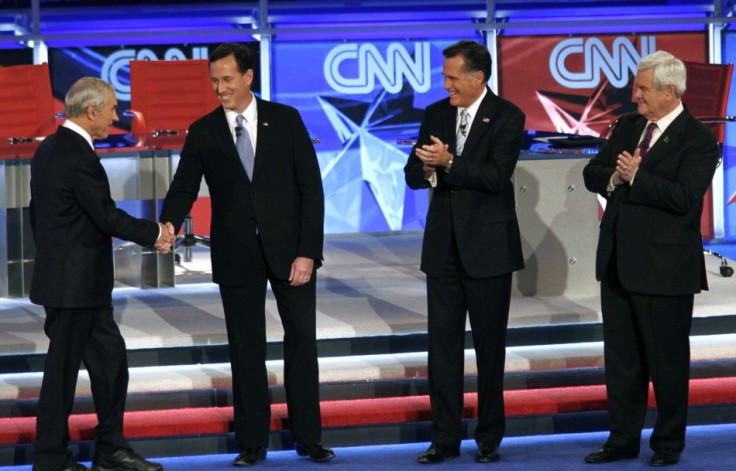What Is Super Tuesday? What to Watch Out For

It's one of the biggest nights of the election year, and for the GOP presidential nomination contest, it could be a game-changer. Although the GOP primaries and caucuses began two months ago on Jan. 3 in Iowa, in recent weeks, everything has been building up to Super Tuesday, from which a clear front-runner could emerge.
But what exactly is it?
Super Tuesday is the day, in either February or March of a presidential election year, during which the largest number of state-held presidential primaries or caucuses occurs. Each state awards a certain number of delegates to each Democratic or Republican hopeful. While some states award delegates in proportion to each candidate's total votes, others do so using a winner-take-all system. The delegates then vow to support a candidate at their party's national convention. At the Republican National Convention, which takes place this year during the week of Aug. 27 in Tampa, Fla., the candidate with the most delegate votes determines which Republican will face President Barack Obama in November.
Super Tuesday is on March 6 this year. Below is a list of the ten states that will hold a primary or caucus on Super Tuesday, including the number of delegates each state will have to represent it at the convention, according to 2012presidentialelectionnews.com:
- Alaska (caucus) 27
- Georgia (primary) 76
- Idaho (caucus) 32
- Massachusetts (primary) 41
- North Dakota (caucus) 28
- Ohio (primary) 66
- Oklahoma (primary) 43
- Tennessee (primary) 58
- Vermont (primary) 17
- Virginia (primary) 49 (Only Mitt Romney and Ron Paul are on the Virigina ballot. See below for more information.)
This past year stands out for a number of reasons. In most presidential elections that have occurred over the past few decades, each party has rallied around a single candidate by this time in the race. However, this year, the GOP has not yet coalesced nationally around any single candidate.
Mitt Romney has been campaigning for president for about six years (he lost the nomination to Sen. John McCain in 2008), and many believe he is the party's inevitable nominee this time around. However, a large number of Republicans complain that Romney is too liberal, and that he fails to connect with the party's deeply conservative political base. Newt Gingrich and Rick Santorum -- as well as Michele Bachmann, Rick Perry and Herman Cain (before they dropped out) -- all experienced surges past Romney in the national polls, which indicates that Republicans are still looking for an alternative to the former Massachusetts governor.
After the Michigan and Arizona primaries last week, the race for the leading number of delegates appears to be between Romney and Santorum, a former senator from Pennsylvania. Santorum experienced a surge past Romney in some national polls in mid-February, but it fizzled out by the end of the month. The close race in Michigan last Tuesday proves that Romney can't get too comfortable in the lead just yet.
Gingrich is focusing on Georgia. The former speaker of the House has lagged behind his rivals in recent contests, and he has invested most of his time in his home state, where he has the greatest chance of winning a large amount of delegates. He needs a victory there in order to prove that his candidacy still has a chance -- but it's certainly not guaranteed. Santorum and Romney have both invested time and money there, and according to the Associated Press, the population has increased by more than 18 percent since Gingrich last held office there in the late 1990s.
Another state to watch is Ohio. Santorum currently leads in several polls in the Buckeye state, which is a neighbor to his native state, Pennsylvania.
Paul, meanwhile, has high hopes for the caucuses. The Texas congressman will spend the last few hours of Super Tuesday in Idaho, hoping for his first state win. Paul came in second there during the 2008 primary, and he won an Idaho straw poll in January. Instead of focusing on wins, Paul has been trying to sweep up as many delegates as possible, in order to make a big impression at the convention this summer.
In Virginia, Gingrich and Santorum both failed to qualify for the ballot. Although they -- along with Perry and Jon Huntsman, who also weren't allowed onto the ballot -- sued the state of Virginia, their requests were denied, CNN reported in January. The state is likely a sure win for Romney.
A total of 437 delegates are at stake on Tuesday, more than doubling the amount of delegates accumulated by the candidates so far.
© Copyright IBTimes 2024. All rights reserved.





















